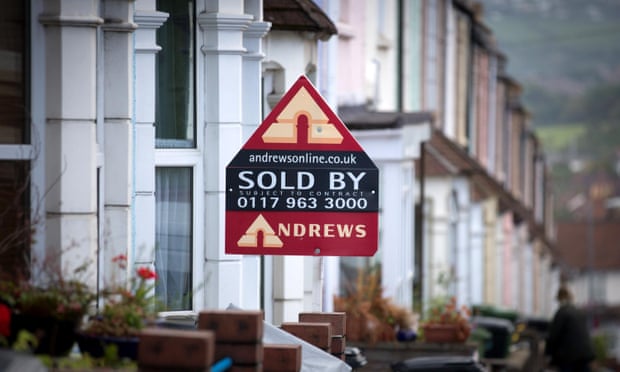
Persimmon has reported a bumper year, with weekly sales up a fifth in the second half of 2021 compared with pre-pandemic levels, thanks to a booming housing market driven by cheap mortgage deals and a stamp duty holiday.
The UK’s biggest housebuilder by market value said in a trading update that revenues rose 8.4% last year to £3.61bn as it completed the sale of 14,551 homes, up almost 1,000 on 2020, as the average price of a home rose from £230,534 to £237,050 year-on-year.
However, Persimmon said the spread of the Omicron variant has increased sickness-related absenteeism, with some customers delaying moving into new homes to follow government isolation advice.
Q&A
What is stamp duty?
Show
Stamp duty land tax, its proper name, is a tax paid by someone who purchases a property or piece of land in England or Northern Ireland – Scotland and Wales have their own systems. The tax is paid when the sale is completed and is based on the sum paid.
Prior to Rishi Sunak’s July 2020 financial statement, there were two different points at which stamp duty was payable, depending on whether you were a first-time buyer or a mover. For movers, stamp duty had to be paid on any property costing more than £125,000.
For first-time buyers there was no stamp duty to pay unless a property cost more than £300,000. If your first home cost more than £500,000 you paid the same as a mover but if it cost less than that, you only paid tax on the part of the price that fell between £300,000 and £500,000.
The starting threshold will was increased to £500,000 on all sales taking place before 31 March 2021. The starting rate above £500,000 is 5% and will apply to the part of the sale up to £925,000.
The change will apply to second homes and additional properties. They attract a 3% surcharge, and this will still be in place.
Hilary Osborne
Photograph: Matt Cardy/Getty Images EuropeWas this helpful?Thank you for your feedback.
“While the industry continues to face the ongoing operational and economic challenges as a consequence of the pandemic, particularly as the Omicron outbreak unfolded in the last six weeks of the year, the group continues to manage these ongoing challenges comprehensively,” said Dean Finch, the chief executive at Persimmon. “The long-term fundamentals of the UK housing market remain strong and I am confident.”
The company responded to government plans to force housebuilders to pay to fix defective cladding after the Grenfell fire, although Persimmon said it had built only a “very small proportion” of buildings affected.
“We share the secretary of state’s aspiration that leaseholders should not have to pay to remove cladding,” the company said. “Indeed, we made a commitment a year ago that leaseholders in buildings constructed by Persimmon, including all those above 11 metres, should not have to cover the cost of cladding removal.
“We have constructed only a very small proportion of buildings affected by this issue. In common with the rest of the housebuilding industry, we will shortly begin paying the cladding levy announced in the budget.”
The company has previously said 26 of the buildings it has constructed have been found to have defective cladding.
Sign up to the daily Business Today email or follow Guardian Business on Twitter at @BusinessDesk
Along with its peers, the FTSE 100 company has benefited from the UK’s pandemic-fuelled housing boom as homebuyers sought to exploit the government’s stamp duty holiday, which ended last October, historically low borrowing costs and the “race for space” trend as the rise in flexible and remote working fuelled a rise in buyers seeking at properties in more rural and picturesque locations.
Persimmon said home-buying inquiries had “remained encouraging” despite the end of government support schemes, with demand continuing to outstrip supply.
However, the company said its £1.62bn order book at 31 December is slightly down on 2020’s £1.69bn, although it’s up on 2019’s £1.36bn.

